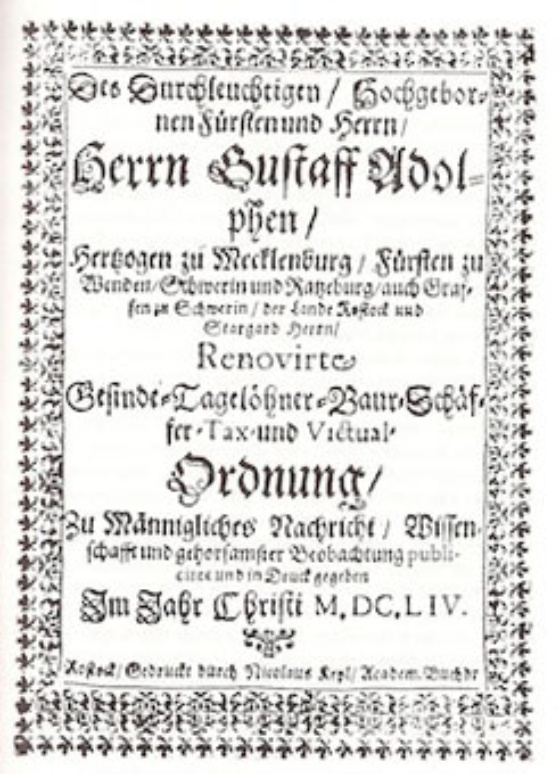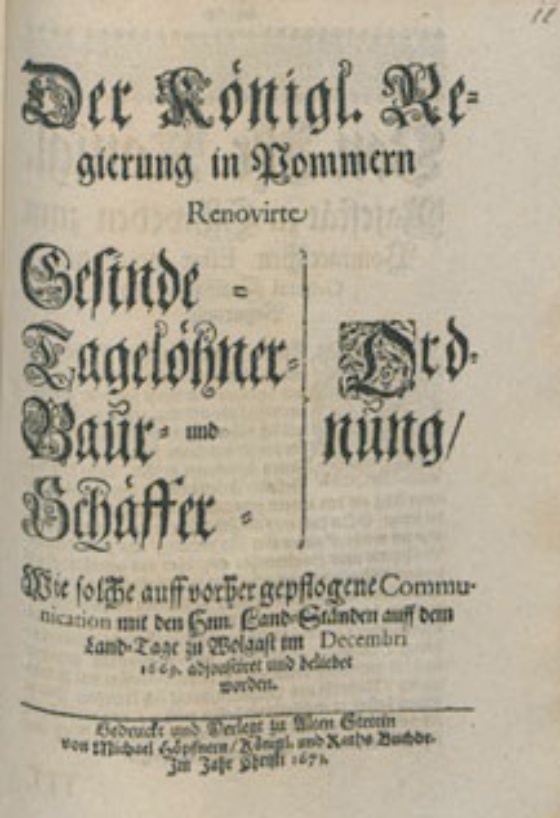In 1654, the Servants‘ Law anchored serfdom in Mecklenburg. For the first time it was legally formulated. The serfs were part of estates, could be sold along with them and were deprived of all personal freedom.
Agriculture 1650 up to 1700
On the timeline through this topic
Choose time period:


Major landowners seize forsaken land and recruit dependent villagers, owners of small farmsteads and cottagers to tend the properties. The landowners only employ a few tenant farmers to provide manual and cart work on their estates. The class of independent farmers is almost entirely eradicated. Deserted towns are left to rot or are merged to form agricultural combines, which are then leased. The practice is defined in the Farming Ordinance of 1670. Swedish civil servants, officers and noblemen are rewarded by the king with land, while cheap loans are provided to promote the emergence of estates.
Nothing to show for the actual filters